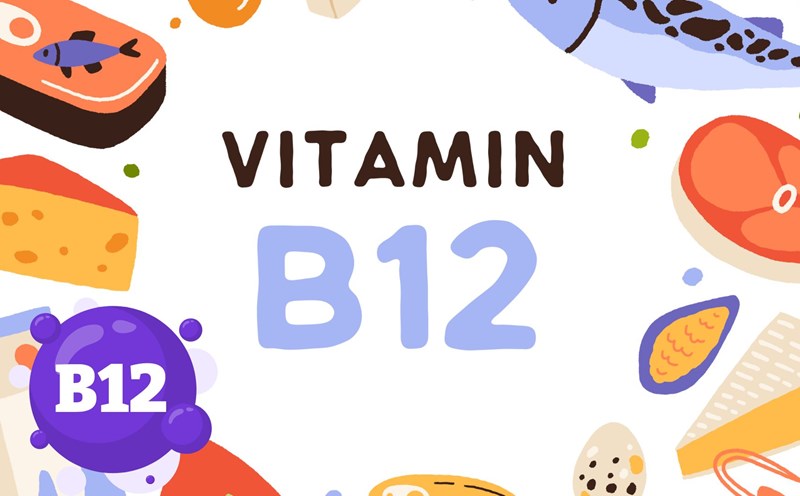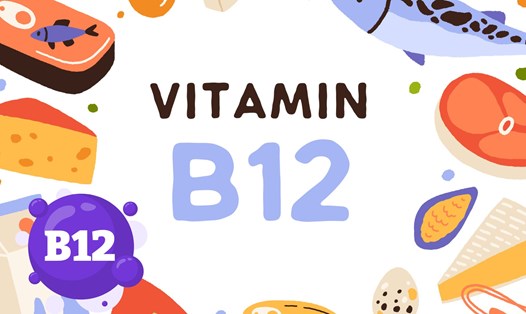Does juicing help?
Vitamin B12 is essential for red blood cell production, nerve cell function, and DNA synthesis. However, a B12 deficiency can be harmful to your body.
Ms. Kanikka Malhotra - nutrition and diabetes consultant (India) - said that relying only on plant-based drinks cannot help fight vitamin B12 deficiency in the body.
“Fruit juices like orange or pomegranate do not contain much vitamin B12. This essential vitamin is mainly found in animal foods. Therefore, people who eat a plant-based diet, such as vegans, are more likely to be deficient in vitamin B12,” says Malhotra.
Foods that naturally contain vitamin B12 include fish, shellfish, liver, meat, eggs, poultry, and dairy products such as milk, cheese, and yogurt.
If you're concerned about deficiencies, especially if you're a vegetarian, here are some guidelines to follow:
1. Foods rich in folate
Add folate-rich foods like green leafy vegetables (spinach, kale, collard greens), legumes (lentils, chickpeas, black beans), and fruits like oranges, bananas, and avocados to your diet.
2. Source of vitamin B6
Non-citrus fruits like bananas, along with nuts and seeds like sunflower seeds and pistachios are also great sources.
3. Foods rich in vitamin C
To boost nutrient absorption, especially non-heme iron (the most common type of iron, but harder for your body to absorb), consume foods rich in vitamin C such as citrus fruits (oranges, grapefruit, lemons), berries (strawberries, blueberries), and vegetables like bell peppers and broccoli.
Vitamin C's role in promoting iron absorption is especially important for people who rely on fortified foods to absorb vitamin B12.
4. Foods containing calcium
For healthy bones and to aid in the absorption of vitamin B12 in nerve transmission, include calcium-rich foods in your diet.
Dairy products such as milk, cheese, and yogurt are great sources, as are fortified plant milks, tofu, and orange juice. Green leafy vegetables such as kale and collard greens also provide a healthy dose of calcium.
5. Probiotic foods
Maintaining a healthy gut microbiome is essential for absorbing nutrients, including vitamin B12. Incorporate probiotic-rich foods like live-culture yogurt, sauerkraut, kimchi, and more into your diet to support gut health.
6. Foods rich in magnesium
Magnesium plays an important role in many biochemical reactions, including those involving vitamin B12. To ensure you get enough magnesium, include nuts like almonds, cashews, and pumpkin seeds, as well as legumes like black beans and lentils.











